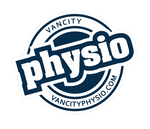Bringing a new life into the world is a miraculous experience, but it can also bring about various physical changes, especially in the pelvic region. Many women face challenges related to pelvic health after childbirth, such as pelvic pain, incontinence, and pelvic organ prolapse. Fortunately, physiotherapy offers effective solutions to help women regain pelvic strength and function postpartum.
Understanding the Impact of Childbirth on Pelvic Health
Childbirth, particularly vaginal delivery, can result in significant stress on the pelvic floor muscles, ligaments, and connective tissues. These structures play a crucial role in supporting the pelvic organs, maintaining urinary and bowel continence, and providing stability to the spine and pelvis.
The hormonal changes during pregnancy also contribute to the weakening of these structures, making postpartum pelvic health a critical consideration for every new mother.
Benefits of Postpartum Physiotherapy
Postpartum physiotherapy, specifically focused on pelvic health, can offer numerous benefits for new mothers. Here's how it can help:
-
Pelvic Floor Strengthening: Physiotherapists guide women through targeted exercises to strengthen the pelvic floor muscles. These exercises enhance muscle tone, improve blood circulation, and aid in the recovery of muscle strength and elasticity.
-
Pain Relief: Many women experience pelvic pain or discomfort after childbirth due to muscle imbalances, scar tissue, or misalignment. Physiotherapists can employ manual therapy techniques and stretches to alleviate pain and restore proper alignment.
-
Incontinence Management: Pelvic floor dysfunction can lead to urinary or fecal incontinence. Physiotherapy teaches techniques to improve bladder and bowel control by enhancing the coordination and strength of the pelvic floor muscles.
-
Pelvic Organ Support: Pelvic organ prolapse is a common issue after childbirth. Physiotherapy focuses on exercises and techniques that promote the optimal positioning and support of pelvic organs, reducing the risk of prolapse.
-
Core Strength and Stability: Postpartum physiotherapy also involves core strengthening exercises, which are essential for maintaining spinal stability, improving posture, and preventing lower back pain.
-
Customized Approach: Each woman's body and experience are unique. Physiotherapy offers tailored treatment plans that address individual needs, taking into consideration factors like the type of childbirth, any complications, and pre-existing conditions.
What to Expect from Postpartum Physiotherapy Sessions
A typical postpartum physiotherapy journey involves several key steps:
-
Assessment: A thorough evaluation is conducted to assess pelvic floor muscle strength, any existing issues, and overall physical condition.
-
Education: Physiotherapists educate women about pelvic anatomy, the importance of pelvic health, and how specific exercises can aid in recovery.
-
Exercises: Tailored exercises are prescribed to target the pelvic floor muscles, core, and overall body strength. These exercises are gradually progressed as muscle strength improves.
-
Manual Therapy: Techniques like myofascial release and massage might be used to address scar tissue, muscle tension, and alignment issues.
-
Home Program: Women are often given exercises and stretches to perform at home to complement in-clinic sessions and ensure consistent progress.
-
Follow-up: Regular follow-up sessions allow physiotherapists to monitor progress, make adjustments to the treatment plan, and provide ongoing guidance.
Postpartum physiotherapy is a valuable resource for women seeking to improve their pelvic health after childbirth. By addressing issues like pelvic pain, incontinence, and pelvic organ prolapse, physiotherapy empowers women to regain confidence, comfort, and control over their bodies. If you're a new mother looking to enhance your pelvic health, consider consulting a physiotherapist experienced in postpartum care. Remember, taking care of your pelvic health is an essential step toward overall well-being and quality of life.
Call us today for a Consultation at 604-398-5584 or click here to book online.


